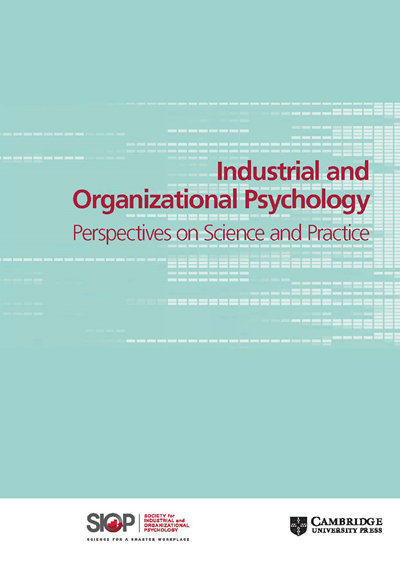Structured interviews: moving beyond mean validity…
IF 11.5
3区 心理学
Q1 PSYCHOLOGY, APPLIED
Industrial and Organizational Psychology-Perspectives on Science and Practice
Pub Date : 2023-08-31
DOI:10.1017/iop.2023.42
引用次数: 1
Abstract
As interview researchers, we were of course delighted by the focal authors’ finding that structured interviews emerged as the predictor with the highest mean validity in their meta-analysis (Sackett et al., 2023, Table 1). Moreover, they found that structured interviews not only provide strong validity but do so while having significantly lower impact on racial groups than other top predictors such as biodata, knowledge, work samples, assessment centers, and GMA (see their Figure 1). Unfortunately, it also appears that structured interviews have the highest variability in validity (i.e., .42 +/− .24) among top predictors (Sackett et al., 2023; Table 1). Such a level of inconsistency is concerning and warrants closer examination. Given that the vast majority of interview research (including our own) has focused on understanding and improving mean validity as opposed to reducing variability, we advocate for a fundamental shift in focus. Specifically, we call for more research on identifying factors that can induce variability in validity and, subsequently, on finding ways to minimize their influence. Our commentary will highlight several prominent factors that have the potential to contribute significantly to the inconsistency in validity. We group them according to three major components of the interview process: interview format/methodology, applicant cognitive processes, and contextual factors.结构化面试:超越平均效度……
作为访谈研究人员,我们当然对焦点作者的发现感到高兴,即结构化访谈在他们的荟萃分析中成为平均有效性最高的预测因子(Sackett等人,2023,表1)。此外,他们发现结构化访谈不仅提供了很强的有效性,而且对种族群体的影响明显低于其他顶级预测因素,如生物数据、知识、工作样本、评估中心和GMA(见图1)。不幸的是,在顶级预测因素中,结构化访谈的有效性变异性最高(即.42+/-.24)(Sackett等人,2023;表1)。这种程度的不一致令人担忧,值得进一步研究。鉴于绝大多数访谈研究(包括我们自己的)都专注于理解和提高平均有效性,而不是减少可变性,我们主张从根本上转移关注点。具体而言,我们呼吁对识别可能导致有效性变异的因素进行更多的研究,并随后寻找将其影响降至最低的方法。我们的评论将强调几个突出的因素,这些因素有可能对有效性的不一致性做出重大贡献。我们根据面试过程的三个主要组成部分对他们进行分组:面试形式/方法、申请人的认知过程和背景因素。
本文章由计算机程序翻译,如有差异,请以英文原文为准。
求助全文
约1分钟内获得全文
求助全文
来源期刊

Industrial and Organizational Psychology-Perspectives on Science and Practice
PSYCHOLOGY, APPLIED-
CiteScore
7.70
自引率
10.10%
发文量
85
期刊介绍:
Industrial and Organizational Psychology-Perspectives on Science and Practice is a peer-reviewed academic journal published on behalf of the Society for Industrial and Organizational Psychology. The journal focuses on interactive exchanges on topics of importance to the science and practice of the field. It features articles that present new ideas or different takes on existing ideas, stimulating dialogue about important issues in the field. Additionally, the journal is indexed and abstracted in Clarivate Analytics SSCI, Clarivate Analytics Web of Science, European Reference Index for the Humanities and Social Sciences (ERIH PLUS), ProQuest, PsycINFO, and Scopus.
 求助内容:
求助内容: 应助结果提醒方式:
应助结果提醒方式:


